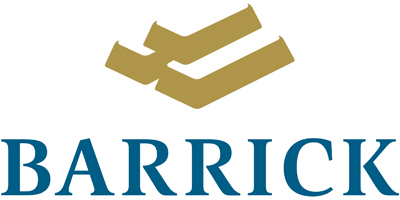Why the Future of Mining Depends on Social Change
Feb 24, 2012 12:00 PM ET
Originally Published on the Forbes CSR Blog
by Paul Klein, Contributor
“CSR represents mining companies of the future. The mining industry, more than any other, is aware of the problems more than other industries and understands the impacts of the past.” –Wes Hanson, President and CEO of Noront Resources Ltd.
From March 4th – March 7th the world’s largest annual gathering of people, companies and organizations connected with mineral exploration will take place in Toronto at the Prospectors and Developers Association of Canada’s Annual International Convention, Trade Show and Investors Exchange. CSR will be front and center at PDAC’s third Annual CSR Event Series. This week, I reviewed the CSR Event Series program and had the opportunity to connect with some of the people who will be participating in the series. Although PDAC hasn’t defined a CSR theme, my conversations revealed a common thread: how companies in the mineral exploration and development industry can help solve social problems in a way that is also good for business. How can mining companies improve education, health care and access to social service to create a better quality of life for people impacted by mining operations? How will doing this help support business objectives, including securing financing and regulatory approvals, increasing access to qualified employees, and reducing the risk of work stoppages and other disruptions? What are the most appropriate and effective ways to communicate with stakeholders? How will business and social outcomes be measured? These are the questions that should both be debated in the CSR Series and be on the minds of everyone attending PDAC this year. Mining companies face particular challenges. One is the perception (and often the reality) of operating with a social double-standard. Even with last year’s endorsement of the Guiding Principles on Business and Human Rights by the UN Human Rights Council, many mining companies still operate very differently in developing countries than in North America and Australia. First, mining companies need to establish trust with the local communities that are stakeholders in their operations. There are positive signs that mining companies are starting to understand that they have a particularly important social purpose and to change their behavior. Dr. R. Anthony Hodge, President of the International Council on Mining and Metals believes that times have changed. One of ICMM’s Council members recently pointed out that the greatest insurance policy that his company had was community trust. “Generating this kind of trust is not possible through following the kind of paternalistic approach that characterized the industry only a few decades ago. Progressive mining companies see themselves as a member of the community – a cog in the wheel – not even the dominant member,” says Dr. Hodge. By focusing on sustainable prosperity Goldcorp has started to see returns on its social investments. According to Dina Aloi, Goldcorp’s Vice President of CSR from 2002 to 2009, the company increased school enrolment in the six nearby communities around its Marlin mine in Guatemala by 82%. In addition, she says the company has expanded access and quality of healthcare, introduced vocational training, put a priority on local business development, and established more respect for human rights, including Indigenous rights. These positive social outcomes will likely generate more trust for Goldcorp at a local level and contribute to the company’s broader business objectives. Barrick Gold Corporation has found that multi-stakeholder partnerships, involving local governments, communities, and NGOs, can ensure that longer-term, sustainable solutions are put in place. “At our current project in the Dominican Republic, Barrick was the catalyst in bringing together local communities, NGOs, municipal authorities, and the Canadian Embassy, to discuss, prioritize, and ultimately decide by community vote, what the communities wanted done with the funds they will start receiving once the mine starts full operations,” says Peter Sinclair, Vice President, Corporate Social Responsibility, Barrick Gold Corporation. Sinclair observes that through this process, Barrick has forged new relationships within the community, found renewed trust among local stakeholders, and perhaps not surprisingly, feels more confident about the state of its social license to operate as a result. Continue reading Paul Klein's post "Why the Future of Mining Depends on Social Change," on the Forbes CSR Blog.
